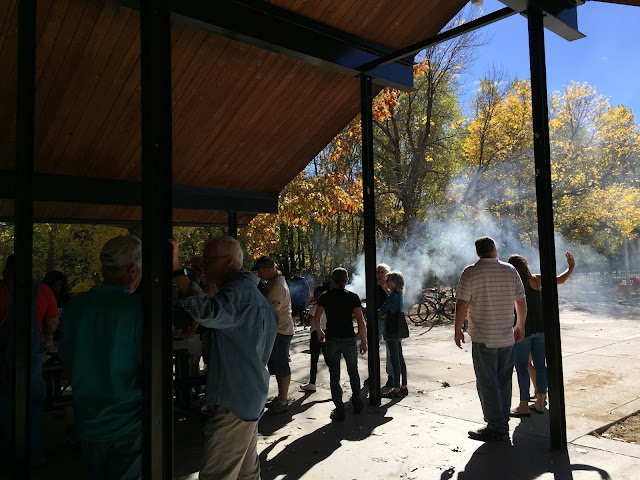Work Begins Using Denver Opioid Abatement Funds
Published in: Denver News
$4.8 Million awarded by the Denver Department of Public Health & Environment to projects that combat opioid use
The Denver Department of Public Health & Environment (DDPHE) is excited to announce work has begun using the first round of Opioid Abatement Settlement Funding. These 15 newly funded projects reflect Denver’s commitment to addressing the opioid crisis in the region and fostering collaborations that make a meaningful impact on public health.
“Denver took an innovative approach to the distribution of Opioid Abatement Funds by putting them in the hands of organizations in our community working directly with people impacted by the opioid epidemic," said Mayor Mike Johnston. “These projects will reduce overdoses, increase accessibility to care, and will ultimately save lives.”
The Denver Regional Opioid Abatement Settlement Funding program, administered by DDPHE, aims to provide financial support to community organizations working to address the impacts of opioid addiction and stigma. The Denver Opioid Abatement Council, which includes representatives from city agencies, service providers and community-based subject matter experts, received 36 completed applications for round one funding from organizations supporting opioid abatement efforts throughout Denver. A total of $4.8 million was awarded.
Round one projects highlight Denver’s plan for how funding could be used in selected program areas. These areas include:
- Community Outreach and Education: Funding is allocated to projects that focus on community outreach and education, aiming to raise awareness about opioid addiction, its impact, and available resources for support.
- Treatment Access Expansion: Initiatives are selected to expand access to treatment services, including increasing culturally responsive care, reducing treatment costs, and adding more providers to meet current and future need.
- Harm Reduction Strategies: Projects incorporating harm reduction strategies, such as enhanced community education about opioid use disorder, greater distribution of harm reduction tools, and programs that support resiliency and positive coping strategies.
“The first round of projects using Opioid Abatement Funding exemplify the important work happening in our community to address the opioid crisis.” said DDPHE Interim Executive Director Bob McDonald. “We are proud of the creative strategies selected, which are vital to addressing opioid use in Denver.”
Of the 15 awarded contracts, about half have been fully executed. Completed contracts include:
- First Responder Naloxone Distribution and Harm Reduction Pilot Program-The Naloxone Project will pilot this project as part of the development of the new Colorado Prehospital Addiction Care Consortium (CPACC), an association of first responder and addiction care organizations working to improve substance use disorder management and reduce overdoses. In partnership with Denver Health and the Department of Public Safety, The Naloxone Project will develop and deliver training to over 3,000 emergency medical service, police, and prehospital personnel to assess for overdose risk and distribute over 5,000 doses of naloxone in leave behind kits.
- Increasing Accessibility to Care and Treatment for People Who Use Drugs–Colorado Health Network (CHN) will address barriers to behavioral health and healthcare including substance use treatment services that people who use drugs (PWUD) are experiencing. CHN’s established harm reduction program will play an integral role in connecting PWUD successfully to care by having a Behavioral Health Clinician on-site to meet with PWUD immediately. PWUD will be referred to CHN’s medical clinic where a Clinical Care Coordinator will provide integrated care management in order to meet the complex medical, psychological and social needs of PWUD. CHN will also develop capacity of opioid crisis staff exposure to clients through staff training and compensation.
- Engaging Youth Expertise for Opioid Abatement- To prevent opioid overdose, promote harm reduction, and bolster resilience and positive coping among Denver youth, Denver Health and Hospital Authority is creating Engaging Youth Expertise for Opioid Abatement. Leveraging DHHA’s commitment to authentic youth engagement and extensive experience addressing substance misuse within Denver’s communities, the project will create a network of youth in Denver who are prepared to prevent overdose and other harms associated with opioid use among their peers, while also promoting a model for engaging young people with lived experience in addressing youth opioid abatement needs.
- Culturally Responsive Peer Recovery Support Expansion-Advocates for Recovery will expand its services for people of color in Denver who are increasingly impacted by opioid misuse and overdose. Advocates for Recovery aims to reduce racial disparities in access to peer recovery support by providing an authentically inclusive community reflective of Denver’s diversity. This includes investments in staff training, an equity audit of policies, procedures, and peer coach training materials, launch of a justice, equity, diversity, and inclusion advisory committee, and hiring of a director of inclusion and community outreach and a bilingual/bicultural peer coach to expand access and inclusion to the Denver Spanish speaking community.
More information about all 15 Round One Funded Projects, including awarded organizations, project titles, and the original request for proposals can be found here.
Since October 2022, Denver has received $7,199,545.72 from regional and local shares of the statewide opioid settlement funds through the Attorney General's Colorado Opioid Abatement Council. Colorado expects to receive additional settlement funds throughout the next 15 or more years.
The Denver Opioid Abatement Council is developing a strategic plan to maximize the impact and effectiveness of Denver's regional and local share of settlement funds. The strategic plan will utilize data, best-practices, and community input to guide the allocation of settlement funds. The DOAC plans to pass on the bulk of funding to community organizations, through a competitive process.
News via denvergov.org
https://www.denvergov.org/Government/Agencies-Departments-Offices/Agencies-Departments-Offices-Directory/Public-Health-Environment/News/2024/Work-Begins-Using-Denver-Opioid-Abatement-Funds
from Jobs in Denver http://www.denverdonate.com/denver-news/work-begins-using-denver-opioid-abatement-funds
via Field Guide for Homeless Veterans

Comments
Post a Comment